
Monogatari Series: Off & Monster Season
Summary: Koyomi Araragi spent his last year of high school helping girls in his town resolve various supernatural afflictions. But now Araragi has departed for university, leaving his friends to fend for themselves against new problems and curses that plague them. Yotsugi Ononoki, once a human corpse and now a living doll, takes residence in Araragi's home, keeping watch over his sister Tsukihi, a girl harboring a mystical secret of her own. As part of her duties, Yotsugi fills Araragi's vacated role as occult expert, assisting others in town with their issues.
One of these girls, middle school student Nadeko Sengoku, slowly recovers from her own recent brushes with the paranormal. She avoids returning to school, instead spending time alone in her room and pursuing her dream of becoming a professional manga artist. In order to speed up Nadeko's quest for mastery of her craft, Yotsugi convinces her to create four copies of herself, each representing a distinct aspect of Nadeko's personality. However, the clones refuse to help Nadeko, instead escaping into the town and creating a chaotic mess. Now forced to grapple with her own fractured sense of identity, Nadeko sets out to capture them and resolve her inner conflict.
[Written by MAL Rewrite]
Description
Koyomi Araragi spent his last year of high school helping girls in his town resolve various supernatural afflictions. But now Araragi has departed for university, leaving his friends to fend for themselves against new problems and curses that plague them. Yotsugi Ononoki, once a human corpse and now a living doll, takes residence in Araragi's home, keeping watch over his sister Tsukihi, a girl harboring a mystical secret of her own. As part of her duties, Yotsugi fills Araragi's vacated role as occult expert, assisting others in town with their issues.
One of these girls, middle school student Nadeko Sengoku, slowly recovers from her own recent brushes with the paranormal. She avoids returning to school, instead spending time alone in her room and pursuing her dream of becoming a professional manga artist. In order to speed up Nadeko's quest for mastery of her craft, Yotsugi convinces her to create four copies of herself, each representing a distinct aspect of Nadeko's personality. However, the clones refuse to help Nadeko, instead escaping into the town and creating a chaotic mess. Now forced to grapple with her own fractured sense of identity, Nadeko sets out to capture them and resolve her inner conflict.
[Written by MAL Rewrite]
Available At
Warning: Array to string conversion in /home/hianime.me.uk/public_html/anime.php on line 243
Array
Monogatari Series: Off & Monster Season Trailers
Monogatari Series: Off & Monster Season Pictures
Monogatari Series: Off & Monster Season Review
Monogatari Series: Off & Monster Season — Koyomi Araragi spent his last year of high school helping girls in his town resolve various supernatural afflictions. This overview is intentionally spoiler-free and focuses on tone and intent rather than plot specifics.
Thematically, It sits firmly within Comedy, Mystery, Supernatural conventions as a ONA work and has garnered attention (MAL score: 8.66). This work explores character dynamics, tonal shifts, and the interplay between narrative ambition and execution. The story's pacing and tonal choices are crafted to complement the central ideas, often emphasizing atmosphere and emotional truth over explicit exposition. The show's ability to evoke a consistent mood — whether melancholic, exuberant, or contemplative — is a recurring strength, and the scenes are constructed so viewers can infer stakes without needing explicit spoilers.
Characterization is a core pillar here. Protagonists and supporting figures are written with distinct motivations and narrative roles; even when archetypal, the series invests in small behavioral details that make choices feel earned. Character arcs are handled with an eye for gradualism: development often arrives through incremental beats rather than abrupt, expository shifts. The interactions between characters create texture, and relationships are used to illuminate both personal flaws and larger thematic concerns.
On the visual front, production values play a significant role. The animation quality varies by sequence but frequently showcases thoughtful direction and composition. Background art, framing, and color palettes are used deliberately to support tone — quieter scenes favor muted palettes while action or heightened emotional beats employ brighter, more kinetic visuals. Direction choices, such as camera movement and shot selection, often elevate scenes beyond their raw script, creating moments that linger in the viewer's mind.
The soundscape — score, incidental music, and sound design — complements the visual language. Music cues are placed to maximize emotional resonance without manipulating the audience with melodrama; this restraint often leads to more authentic emotional payoff. Sound design punctuates key moments, and when the series leans on silence, those quieter moments are given weight by measured audio choices.
Pacing and structure are handled with craft. Episodes are arranged to build tension and release methodically, and the narrative rarely rushes through important emotional beats. That said, the deliberate pacing may feel slow to viewers who prefer faster plot turnover; the reward is greater nuance and an accumulation of meaning across the series. Accessibility is generally good — one can appreciate surface-level pleasures, while repeat or attentive viewing reveals additional layers.
No title is without flaws. Occasional unevenness in subplots or variable animation across episodes can be distracting. Some tonal shifts might feel abrupt if you expect uniformity; others will argue that those shifts are purposeful. These are worth noting, but they seldom undercut the larger achievements of the work.
In sum, Monogatari Series: Off & Monster Season offers a rich experience for viewers who value character-driven storytelling, considered visual design, and a soundtrack that supports rather than overwhelms. For fans of Comedy, Mystery, Supernatural, this is an especially rewarding watch. It's recommended for those who appreciate layered narratives and artistry in animation, and best approached with patience and attention to nuance.
Characters & Voice Actors

Araragi, Koyomi
Main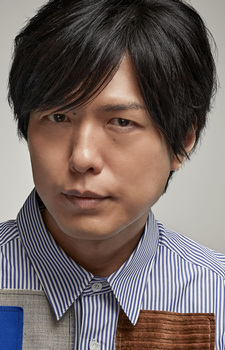

Deathtopia Virtuoso Suicide-Master
Main

Ononoki, Yotsugi
Main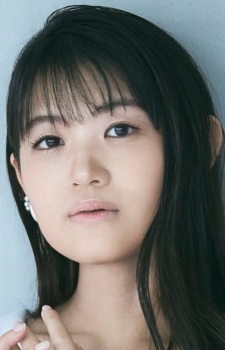

Oshino, Shinobu
Main
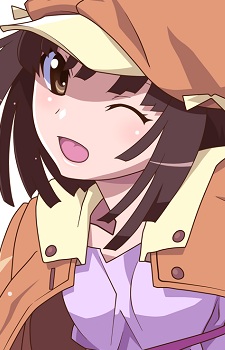
Sengoku, Nadeko
Main

Araragi, Tsukihi
Supporting

Araragi, Karen
Supporting

Civia, Sylvia
Supporting

Gaen, Izuko
Supporting
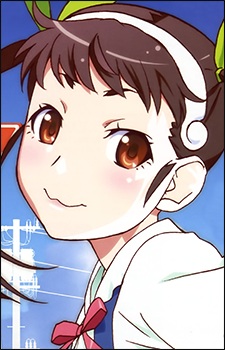
Hachikuji, Mayoi
Supporting

Hamukai, Meniko
Supporting

Harimaze, Kie
Supporting

Higasa, Seiu
Supporting

Kagenui, Yozuru
Supporting
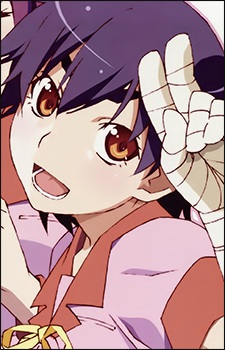
Kanbaru, Suruga
Supporting

Mayoko, Reika
Supporting

Oikura, Sodachi
Supporting
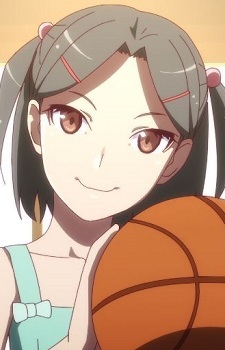
Ooki, Seiko
Supporting

Oshino, Ougi
Supporting

Senjougahara, Hitagi
Supporting
Staff

Ishikawa, Tatsuya
Producer

Matsukawa, Yuuya
Producer

Nishibe, Maho
Producer

Shioya, Yoshiyuki
Producer

Suzuki, Ryuusuke
Producer

Yodo, Akiko
Producer

Fukagawa, Ikumi
Assistant Producer

Hagiwara, Mika
Assistant Producer

Nakayama, Naho
Assistant Producer

Sugai, Natsuki
Assistant Producer

Shinbou, Akiyuki
Director, Series Composition

Yoshizawa, Midori
Director, Episode Director, Storyboard

Tsuruoka, Youta
Sound Director

Fujita, Shouhei
Episode Director

Matsumura, Kouji
Episode Director, Storyboard

Miyamoto, Yukihiro
Episode Director

Ookubo, Shunsuke
Episode Director

Shibuta, Naoaki
Episode Director

Shimura, Ryou
Episode Director, Storyboard, Key Animation

Sumiya, Osamu
Episode Director, Key Animation